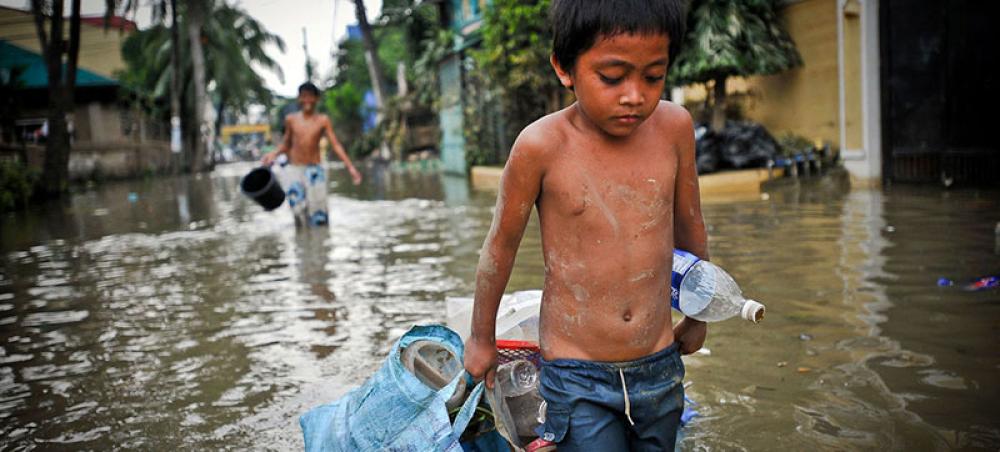Just Earth News | @justearthnews | 30 Oct 2021, 12:23 am Print
 Climate Change
Climate Change Image: ADB
New York: Countries must step up urgent action to address the water-related consequences of climate change, the head of the World Meteorological Organization (WMO) and nine other international organizations said on Friday in a letter to world leaders issued ahead of the COP26 UN climate change conference.
They appealed for governments to prioritize integrated water and climate action, for the benefit of people and the planet, to ensure availability, and sustainable management, of water and sanitation for all.
“Climate change is dramatically affecting the water cycle, making droughts and floods more extreme and frequent and decreasing the natural water storage in ice and snow. Rising temperature and variability in flow patterns of water bodies also strongly affect water quality both in surface and groundwater,” they said.
The ‘climate connector’
The letter listed additional impacts, as changing precipitation patterns are already affecting agriculture, food systems, and livelihoods, as well as ecosystems, and biodiversity. Meanwhile, rising sea levels threaten communities, infrastructure, coastal environments and aquifers.
The partners cited a recent report by the UN Children’s Fund, UNICEF, which found that over one third of the world’s children, some 920 million boys and girls, are currently severely exposed to water scarcity.
They added that the 2020 UN World Water Development Report further emphasized that water is the “climate connector” that allows for greater collaboration across the majority of global targets for climate response, sustainable development, and disaster risk reduction.
Action for governments
The letter was signed by the heads of WMO, UNICEF, the Food and Agriculture Organization (FAO); the UN Educational, Scientific and Cultural Organization (UNESCO); the World Health Organization (WHO); the International Fund for Agricultural Development (IFAD); the UN Environment Programme (UNEP); the UN University (UNU); the UN Economic Commission for Europe (UNECE), and the Global Water Partnership (GWP).
They outlined several urgent priorities, such as integrating water and climate through adaptation and resilience planning at the national and regional level, and promoting and financing global water monitoring systems to provide timely information about current and future water availability.
Other recommendations include supporting technical, political and scientific cooperation, and promoting “a proactive approach” to flood and drought management centred around the pillars of monitoring, forecasting and early warning; vulnerability and impact assessment; and preparedness, mitigation and response.
- Ocean in crisis: 50% of coral reefs destroyed during devastating 2014–2017 heatwave!
- Extreme heat to engulf half the world by 2050, Oxford study alerts
- Twice the heat, twice the danger! Arab region faces explosive climate threat, warns UN
- When finance flows, ambition grows: The critical COP30 message the world can’t ignore
- Breathing polluted air causes more than 4.5 million premature deaths every year, say UN climate experts





-1763561110.jpg)
